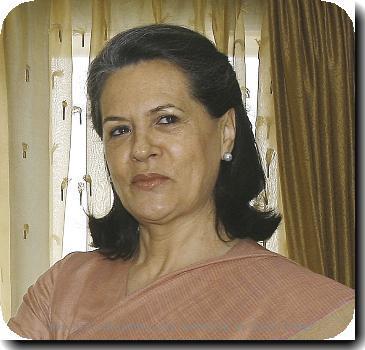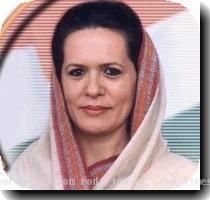Enigmatic Rahul Gandhi preparing for his political future: NYT
By ANISaturday, June 5, 2010
AHRAURA - Despite his established political credentials and an aura of inevitability about his future, Rahul Gandhi, the great-grandson of India’s first prime minister (Jawaharlal Nehru), the grandson of India’s fourth prime minister (Indira Gandhi) and the son of India’s seventh prime minister (Rajiv Gandhi), largely remains an enigma.
He remains deliberately aloof from daily politics and his thoughts on many major issues remain mostly unknown.
However, according to a New York Times report, he seems to be preparing for his future.
The paper further quotes analysts, as saying, in due course, Gandhi will have to reveal more about himself than his just organizational vision.
He has traveled widely and met with business or political leaders such as former British Foreign Secretary David Miliband, Microsoft owner Bill Gates, Gamal Mubarak, the son and heir apparent of Egyptian President Hosni Mubarak and Xi Jinping, the man tipped to be China’s next president.
Recently, during a visit to Ahraura, Gandhi said: “I’m standing here with you. I can come with you anywhere and everywhere to fight with you,” and left after 15-minutes without a wave to those who gathered to see this scion of the Nehru-Gandhi family.
India is the Gandhi’s family inheritance. Seemingly the only uncertainty is when he will collect it. He holds no major post in government, yet rumors persist that the Indian National Congress Party - whose president is his mother, Sonia Gandhi - might install him as prime minister before the current government expires in 2014.
Rahul Gandhi is using his enormous popularity to broaden the party’s political base, steering clear of the more contentious policy-making.
He traverses the country, often on secret trips, to recruit as many as 10 million new youth members. His job is also to try to take back crucial strongholds like Uttar Pradesh, in the north, which his family claims as its home base but which the Congress Party does not control.
Gandhi is trying to bypass the identity politics of caste and appeal to young people of all backgrounds.
His public image is as a humble, serious man, if somewhat shy, even as his name invariably tops polls ranking the country’s “hottest” or “most eligible” bachelors. Yet he almost never grants interviews, including for this article, and only occasionally conducts news conferences.
Reporters are often tipped to his appearances at one village or another but often all they get is a photograph - which inevitably appears in newspapers around India.
His daily life is cloaked in secrecy, which makes it an irresistible if elusive topic for the Indian media.
His advisers say his low profile reflects his desire not to overstep the authority of his organizational position while the secrecy is rooted in security concerns.
His grandmother, Indira Gandhi, was assassinated, as was his father, Rajiv Gandhi. His official residence in New Delhi is heavily fortified and he traveled to the rally in Ahraura with a special black-clad security detail.
Analysts say his inaccessibility is also a deliberate effort to protect him from taking unpopular public stands and also to burnish his image.
They also Gandhi’s campaign could eventually threaten entrenched interests within the party. (ANI)

